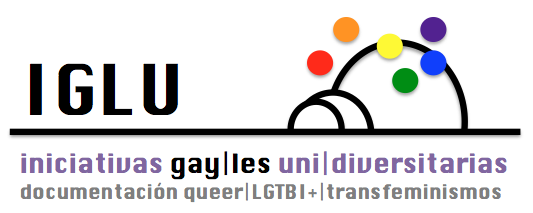 ¿Entiendes? : queer readings, Hispanic writings / ed. by Emilie L. Bergmann and Paul Julian Smith.
¿Entiendes? : queer readings, Hispanic writings / ed. by Emilie L. Bergmann and Paul Julian Smith. Durham, NC : Duke University Press, 1995 [05].
xii, 429 p.
Colección: Series Q
ISBN 9780822316152
/ EN / ENS / REC
/ América latina / Homosexualidad y literatura / Lesbianismo / Literatura – Historia y crítica / VIH-Sida
Biblioteca UPV/EHU
https://millennium.ehu.es/record=b1269498~S1*spi
"¿Entiendes?" is literally translated as "Do you understand? Do you get it?" But those who do "get it" will also hear within this question a subtler meaning: "Are you queer? Are you one of us?" The issues of gay and lesbian identity represented by this question are explored for the first time in the context of Spanish and Hispanic literature in this groundbreaking anthology. Combining intimate knowledge of Spanish-speaking cultures with contemporary queer theory, these essays address texts that share both a common language and a concern with lesbian, gay, and bisexual identities. Using a variety of approaches, the contributors tease the homoerotic messages out of a wide range of works, from chronicles of colonization in the Caribbean to recent Puerto Rican writing, from the work of Cervantes to that of the most outrageous contemporary Latina performance artists. This volume offers a methodology for examining work by authors and artists whose sexuality is not so much open as "an open secret," respecting, for example, the biographical privacy of writers like Gabriela Mistral while responding to the voices that speak in their writing. Contributing to an archeology of queer discourses, "¿Entiendes?" also includes important studies of terminology and encoded homosexuality in Argentine literature and Caribbean journalism of the late nineteenth century. Whether considering homosexual panic in the stories of Borges, performances by Latino AIDS activists in Los Angeles, queer lives in turn-of-the-century Havana and Buenos Aires, or the mapping of homosexual geographies of 1930s New York in Lorca's "Ode to Walt Whitman”, "¿Entiendes?" is certain to stir interest at the crossroads of sexual and national identities while proving to be an invaluable resource.
Emilie L. Bergmann is Associate Professor of Spanish at the University of California, Berkeley and a coauthor of “Women, Culture and Politics in Latin America”.
Paul Julian Smith is Professor of Spanish and Portuguese at Cambridge University. He is the author of many books including, “Desire Unlimited: The Cinema of Pedro Almodóvar” and “Laws of Desire: Questions of Homosexuality in Spanish Writing and Film, 1960–90”.
SUMARIO
1 / Introduction / Paul Julian Smith and Emilie L. Bergmann One. Re-Loading the Canon
17 / Aldonza as Butch: Narrative and the Play of Gender in Don Quixote / Mary S. Gossy
29 / The "Fecal Dialectic": Homosexual Panic and the Origin of Writing in Borges / Daniel Balderston
Two. (Neo)historical Retrievals
49 / The Argentine Dissemination of Homosexuality, 1890–1914 / Jorge Salessi
92 / Julián del Casal and the Queers of Havana / Oscar Montero
Three. Nationalisms, Ethnicities, and (Homo)sexualities
115 / Community at Its Limits: Orality, Law, Silence, and the Homosexual Body in Luis Rafael Sánchez's 'Jum' / Agnes I. Lugo-Ortiz
137 / Toward an Art of Transvestism: Colonialism and Homosexuality in Puerto Rican Literature / Arnaldo Cruz-Malavé
168 / Fleshing Out Virgilio Piñera from the Cuban Closet / José Quiroga
181 / The Lesbian Body in Latina Cultural Production / Yvonne Yarbro-Bejarano
Four. Biographical Constructions, Textual Encodings
201 / The "Schoolteacher of America": Gender, Sexuality, and Nation in Gabriela Mistral / Licia Fiol-Matta
230 / Disappearing Acts: Reading Lesbian in Teresa de la Parra / Sylvia Molloy
257 / A Logic in Lorca's Ode to Walt Whitman / John K. Walsh
Five. Queer Readers/Queer Texts
281 / The Look that Kills: The "Unacceptable Beauty" of Alejandra Piznarnik's La condesa sangrienta / Suzanne Chávez Silverman
306 / Lesbian Tantalizing in Carmen Lugo Filippi's "Milagros, Calle Mercurio" / Luz María Umpierre
Six. Call to Theory/Call to Action
317 / Virtual Sexuality: Lesbianism, Loss, and Deliverance in Carme Rierra's "Te deix, amor, la mar com a penyora" / Brad Epps
346 / Teatro Viva!: Latino Performance and the Politics of AIDS in Los Angeles / David Román
370 / Nationalizing Sissies / José Piedra
